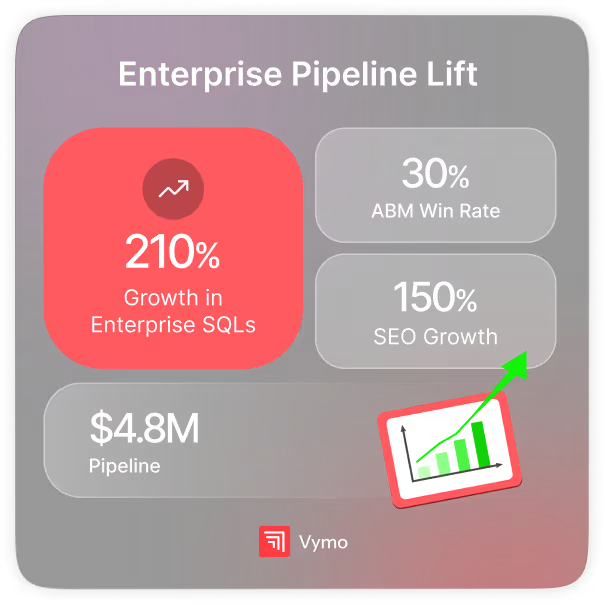We have people at the heart of everything we do and our stories with clients, employees and leadership are testament to this.

Achieve faster go-to-market and higher lead quality across channels through marketing systems using AI to accelerate outcomes.









































.svg)

.svg)



.svg)



%202.svg)




%201.svg)

%202.svg)




%201.svg)

%202.svg)




%201.svg)

%202.svg)




%201.svg)

Revv Growth is an AI-driven SaaS marketing agency offering demand generation, ABM, SEO, content marketing, SaaS PPC, and marketing automation. We combine AI-powered tools, automation workflows, and expert execution to help companies scale pipeline, improve lead quality, and drive revenue growth.

Revv Growth is an AI-driven SaaS marketing agency offering demand generation, ABM, SEO, content marketing, SaaS PPC, and marketing automation. We combine AI-powered tools, automation workflows, and expert execution to help companies scale pipeline, improve lead quality, and drive revenue growth.

Revv Growth brings together an expert SaaS team, advanced AI toolsets, and full-funnel execution. From AI-powered content and search optimization to automated workflows and precision targeting, we combine tech and expertise to build scalable, efficient growth systems.

Account-based marketing (ABM) is crucial for SaaS companies as it allows for personalized marketing efforts directed at specific high-value accounts. At Revv Growth, we build AI-supported ABM programs that combine intent data, predictive targeting, and multi-channel outreach to move the right accounts through your funnel faster.

At Revv Growth, we design full-funnel automation workflows using tools like Make and n8n to streamline lead nurturing, qualification, and sales handoffs. Our automation ensures leads get personalized follow-ups, timely engagement, and seamless movement through your pipeline.

Absolutely! A SaaS marketing agency like Revv Growth can help you develop and execute effective product marketing strategies. We focus on highlighting your product's unique value proposition to attract and retain customers, ultimately boosting your sales.

Demand generation is the foundation of long-term SaaS growth. At Revv Growth, we combine content, SEO, paid media, and automated nurturing to build consistent pipeline. Our demand generation programs attract the right buyers, educate them, and convert interest into qualified opportunities your sales team can close.
